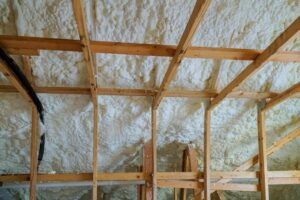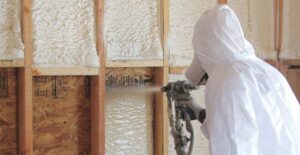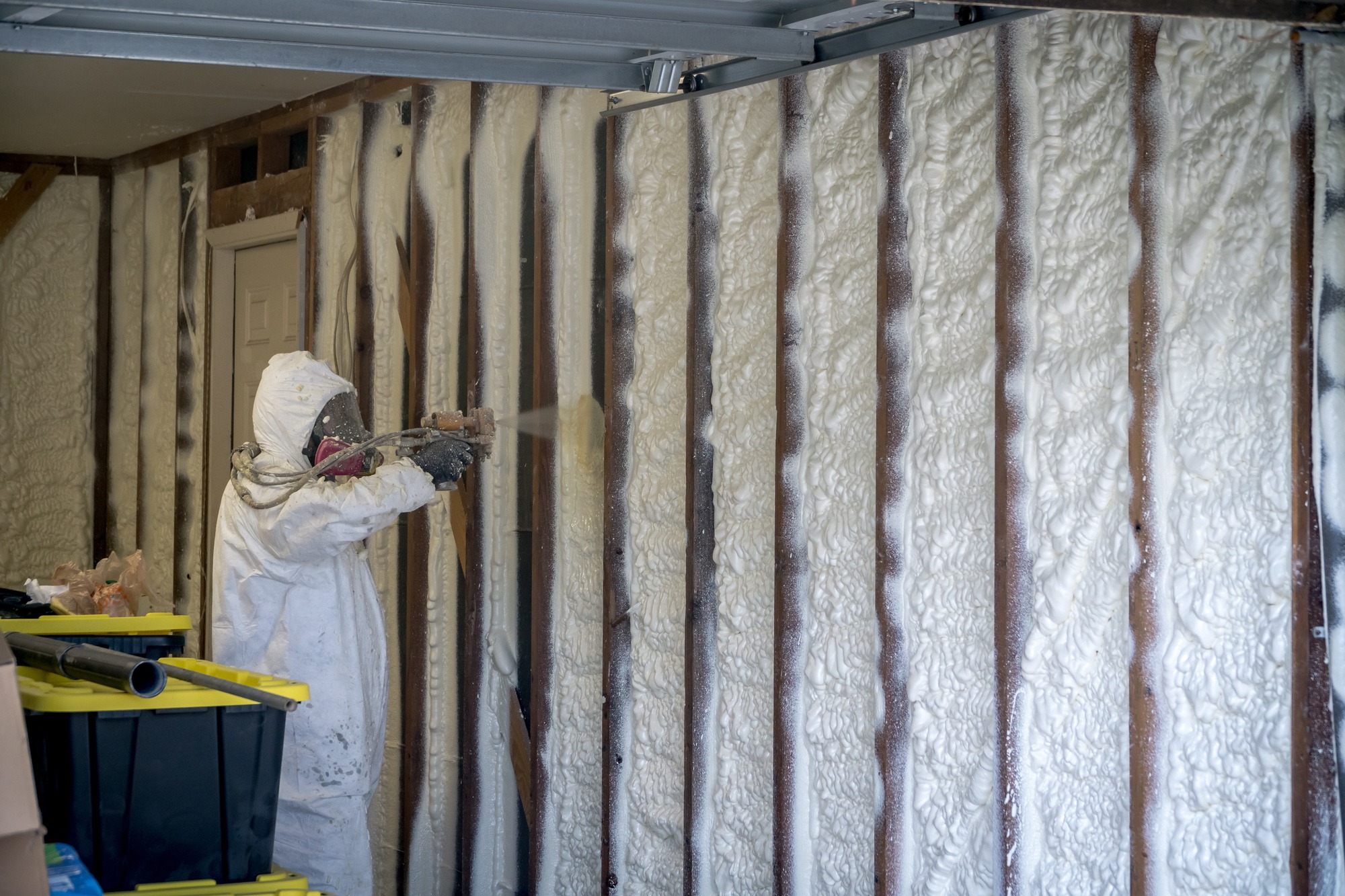Spray foam insulation is an essential tool for achieving commercial energy compliance, ensuring that buildings meet required energy efficiency standards. By providing superior air sealing and insulation, spray foam plays a crucial role in enhancing building performance while reducing energy consumption. Commercial buildings must adhere to specific energy codes and regulations, and spray foam helps meet these requirements by minimizing heat loss, air leakage, and moisture infiltration.
This article explores how spray foam insulation contributes to energy compliance in commercial buildings, covering its benefits, technical specifications, and key considerations before choosing spray foam as an energy-efficient solution.
Key Benefits of Spray Foam for Energy Compliance
Commercial Spray foam insulation offers several advantages for commercial properties seeking to meet energy compliance standards:
- Enhanced Thermal Insulation: Spray foam provides a high R-value per inch, improving insulation efficiency and reducing the need for additional layers of traditional insulation materials.
- Air Sealing: Spray foam expands on application, sealing cracks and gaps in walls, ceilings, and other building components, preventing air leakage that can compromise energy efficiency.
- Moisture Resistance: The closed-cell structure of spray foam helps prevent moisture accumulation, reducing the risk of mold, mildew, and other moisture-related issues.
- Long-Term Performance: Spray foam retains its insulating properties over time, offering lasting benefits without degrading like other insulation types.
Spray Foam and Commercial Energy Codes
Commercial energy compliance is governed by building codes that require specific performance standards. These codes, such as the International Energy Conservation Code (IECC) and ASHRAE 90.1, set clear guidelines for insulation materials and energy performance. Spray foam insulation aligns well with these codes, offering an efficient way to meet or exceed energy demands.
Here’s a comparison of spray foam versus traditional insulation materials in terms of energy compliance:
| Feature | Spray Foam Insulation | Fiberglass Batt Insulation | Cellulose Insulation |
| R-value per inch | 6.0-7.0 | 3.7-4.3 | 3.2-3.8 |
| Air Sealing | Excellent | Poor | Fair |
| Moisture Resistance | High | Low | Moderate |
| Longevity | Long-term | Medium | Medium |
| Ease of Installation | Moderate | Easy | Moderate |
| Energy Code Compliance | High | Low to Moderate | Moderate |
Spray foam’s high R-value and air sealing capabilities make it one of the best choices for meeting stringent commercial energy codes, especially in regions with demanding climates.

Technical Specifications of Spray Foam Insulation
To ensure that spray foam insulation meets specific commercial energy compliance standards, it’s important to understand its technical properties. The following table outlines the key specifications for spray foam products used in commercial applications:
| Specification | Open-Cell Spray Foam | Closed-Cell Spray Foam |
| R-value per inch | 3.5-3.7 | 6.0-7.0 |
| Density | 0.5-1.0 lb/ft³ | 2.0-3.0 lb/ft³ |
| Moisture Vapor Permeability | High | Low |
| Compressive Strength | Low | High |
| Thermal Resistance | Moderate | Excellent |
| Expansion Rate | Moderate | High |
Open-Cell vs. Closed-Cell Foam
- Open-Cell foam is typically used in non-load-bearing applications where insulation is needed but moisture resistance is not a primary concern.
- Closed-Cell foam provides higher insulation values and is better suited for energy compliance, especially in areas requiring moisture control and structural integrity.
Things to Consider Before Making a Decision
Before opting for spray foam insulation for commercial energy compliance, there are several factors to evaluate:
- Building Type and Usage: Consider the specific needs of your building. Closed-cell spray foam is best for areas that require high insulation and moisture resistance, while open-cell foam may be more suitable for less demanding spaces.
- Climate Conditions: In regions with extreme temperatures or humidity, closed-cell foam may provide better protection against heat loss, moisture infiltration, and air leakage.
- Installation Costs: While spray foam typically costs more than traditional insulation materials, it can offer significant long-term savings in energy bills and maintenance costs.
- Building Code Requirements: Ensure that the chosen spray foam meets local energy codes and building regulations. Some codes may mandate specific insulation performance levels that spray foam can exceed.
- Environmental Impact: Consider the environmental impact of spray foam insulation, including the materials used and the energy savings it provides over its lifespan.
Common Questions
What is the main difference between open-cell and closed-cell spray foam?
Open-cell foam is softer, less dense, and has a lower R-value. It is ideal for areas where moisture resistance is less critical. Closed-cell foam, being denser and offering a higher R-value, is better for energy compliance in areas with harsh climates or moisture concerns.
Can spray foam insulation help reduce HVAC costs?
Yes, spray foam insulation helps reduce the workload on HVAC systems by maintaining a more consistent temperature inside the building. This can lead to lower energy consumption and reduced HVAC operation costs over time.
Is spray foam safe to use in commercial buildings?
Yes, when applied correctly by professionals, spray foam insulation is safe for commercial buildings. It meets industry safety standards and can help improve indoor air quality by preventing drafts and moisture accumulation.

FAQ
1. How does spray foam insulation improve energy efficiency in commercial buildings?
Spray foam insulation improves energy efficiency by sealing gaps, reducing air leakage, and providing a high R-value that helps maintain consistent internal temperatures.
2. Is spray foam insulation compliant with all energy codes?
Spray foam insulation generally meets or exceeds energy codes like the IECC and ASHRAE 90.1, provided it is installed correctly and meets the required R-value.
3. How long does spray foam insulation last?
Spray foam insulation is highly durable and can last the lifetime of the building if properly installed and maintained, offering long-term energy savings.
4. Can spray foam be used in retrofit projects for energy compliance?
Yes, spray foam is an excellent option for retrofit projects as it can be applied to existing structures, improving energy efficiency without major renovations.
5. What are the main advantages of closed-cell spray foam?
Closed-cell spray foam provides superior moisture resistance, a higher R-value, and improved structural integrity, making it ideal for commercial energy compliance in challenging environments.
Make the Right Decision
Choosing the right insulation material for commercial energy compliance is a critical decision. Spray foam insulation solutions offer a strong improvement for buildings looking to meet or exceed energy efficiency requirements. By evaluating building type, local climate, energy code requirements, and long-term savings potential, you can make an informed decision on whether spray foam insulation is the best choice for your commercial property.









